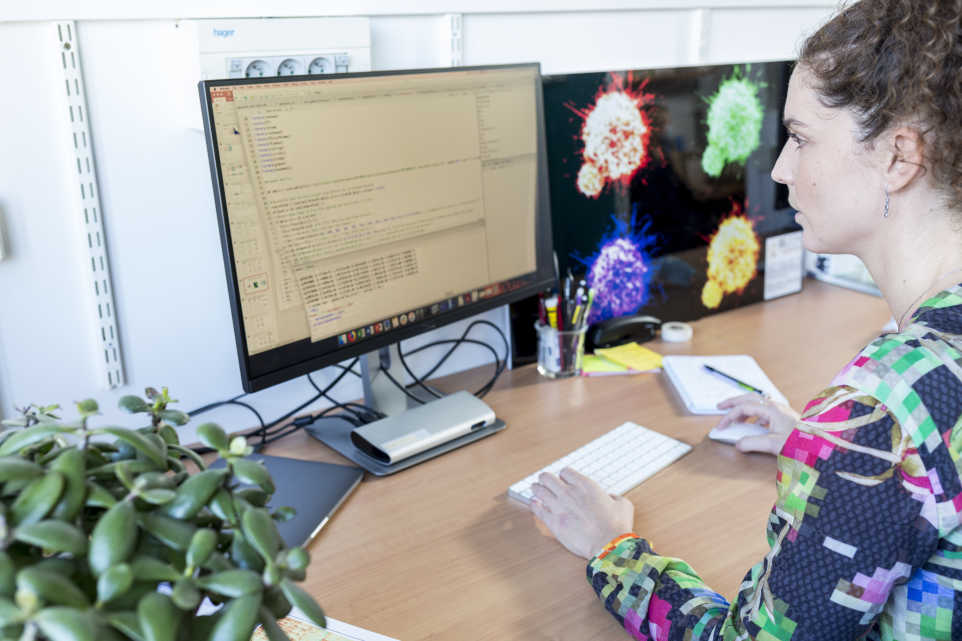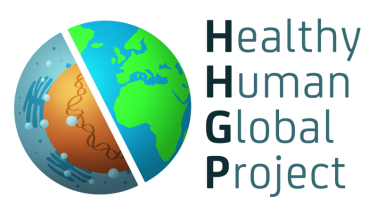The Milieu Intérieur Project
Publications by the Milieu Intérieur Consortium
The Milieu Intérieur (MI) project is an ambitious population-based study coordinated by Prof. Lluis Quintana-Murci and Dr. Darragh Duffy at Institut Pasteur, Paris. The objective is to dissect the interplay between genetics and environment and their impact on the immune system. The project established by Prof. Matthew Albert and Prof. Lluis Quintana-Murci is part of a larger French Governmental Initiative called Investissement d'Avenir - Laboratoire d’Excellence (LabEx).
While the immune system is highly complex and responses are known to vary across individuals and populations, medical practices and public health policies remain based on a single model of patient care and drug development. The Milieu Intérieur project was initiated specifically to address this discrepancy. The specific aims of the Milieu Intérieur project are to:
(i) define the naturally-occurring variability of human immune response,
(ii) assess how this variation is genetically, epigenetically or environmentally controlled,
(iii) understand how this genetic/phenotypic variation may account for differences in susceptibility to infection, therapeutic treatment or vaccine response, and
(iv) ascertain the variation and role of the microbiota in regulating immune programs.
The Milieu Intérieur Consortium has established a 1,000-person healthy donor population, creating an unparalleled opportunity for assessing the determinants of human immunologic variance.
Achievements of the MI project

The MI project has provided new insights into the genetic and non-genetic factors driving immune response variation as well as biobanking and data production. Additionally contributing to teaching, traning and creating a structured community of trans-disciplinary researchers. Some of the key achievements are below. More details here List of publications here
Establishment of a human cohort
Definition of protein and transcriptional immune signatures.
Genetic characterisation of the human cohort
Genetic, intrinsic and environmental determinants of immune response variation.
Characterisation of microbiota
A sample repository and data warehouse
Applying the MI concept to disease settings
(Illustration - Samples and Data collected from the MI cohort and the Analysis performed)
The Future and Now
10-year assessment
We are in the process of setting-up a 10-yr follow-up assessment of our cohort. Given the richness of the datasets available, and the experience we have gained as a multi-disciplinary consortium, we are well positioned to assess temporal variability among the
“healthy” donor population.

We will re-contact donors with a questionnaire and an invitation to participate to a new clinical study. The questionnaire will be similar to the original study to capture information on medical history, lifestyle, dietary and environmental co-factors, though it will be modified and adapted based on experience gained since the initial study. We will focus on questions related to aging, epigenetic changes, microbiome stability and key induced immune responses. We will pay special attention to factors that characterize individuals who no longer meet our initial criteria of a “healthy donor” (e.g., obesity, hypertension or other common conditions) and assess the impact of these changes on immune response variation.
Applying MI concepts to other age groups
Neonatal cohort (Karolinska Institutet)
We will assess the functional responsiveness in newborns during different time points early in life and compare them to adult responses profiled within the MI cohort.
Paediatric cohort (Institut Imagine)
We will analyse the immune response of a cohort of 200 healthy children with ages ranging from 5 to 16 years.
Read more
Elderly cohort (TILDA, Trinity College Dublin)
We will extend the MI approach to an existing longitudinal study of an aging cohort; the Irish Longitudinal study on Ageing (TILDA). We plan to include MI immunophenotyping analysis focusing on elderly populations recruited in this study (500 individuals of >75 years old) to better understand questions related to inflammation and aging and how “inflammaging” contributes to the development of other age associated medical conditions.
Read more about TILDA
Applying MI concepts to other populations

There is a strong bias in the medical literature towards studies focused on populations of European background. To expand the geographical reach and ethnic diversity of MI, we have initiated the Healthy Human Global Project (HHGP), which takes advantage of the IP International Network to establish collaborative projects in Africa and Asia, to complement the existing study in a European population.
Senegal
The first HHGP site is in Institut Pasteur Dakar, where we conducted a pilot study on 48 sex-stratified donors in two villages (Dielmo and Ndiop). We are now analysing the data.
Read more about Institute Pasteur Dakar
Hong Kong
The second HHGP site is at the Institut Pasteur Hong Kong (IP HK) and the University of Hong Kong’s Li Ka Shing Faculty of Medicine (HKU). Together with the Hong Kong Science and Technology Parks Corporation (HKSTP), a new interdisciplinary research centre for immunology, infection and personalised medicine has been established
Read more about the Centre for Immunology and Infection - C2I